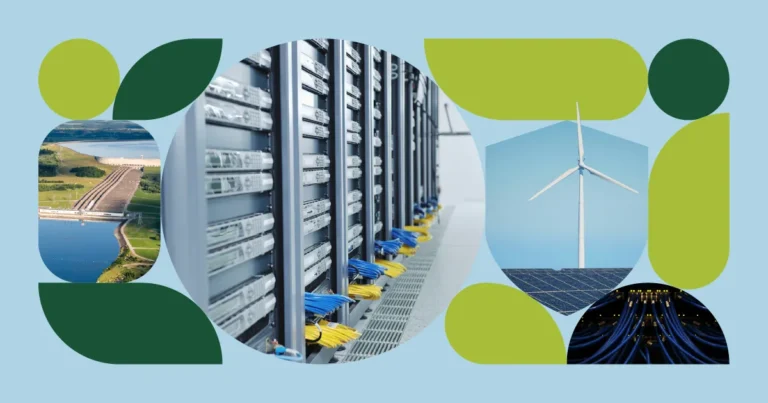This interview with Laisvis Makulis, Head of Business Services Team at Invest Lithuania, was first published in Outsourcing&More magazine. Please follow this link to read the whole issue.
Wiktor Doktór, CEO, Pro Progressio: The success story of BSS investments in Lithuania started over a decade ago. How many BSS operation centres are located in Lithuania today and why did Lithuania considered BSS industry to be potentially a good investor to your Country?
Laisvis Makulis, Head of Business Services Team at Invest Lithuania: Lithuania’s foray into the industry started back in 2009 when the first big movers like Barclays and Western Union opened their Global Business Services (GBS) Centres in Vilnius. Fast-forward to today, and we see a mature and dynamic market comprising 70 GBS centres that employ over 15,000 professionals. And the numbers are growing as we speak!
2017 was a record year for Invest Lithuania, with 39 FDI projects adding over 5,000 new jobs. More than half of these jobs will be created by investments in the GBS sector. Lithuania’s GBS community welcomed big global names like Booking.com, Telia, World Courier, Centric, NKT and many others.
Over the last decade, Lithuania has steadily improved its business environment, making it easier to set up and run a business here. In the World Bank’s Doing Business rankings, we already rank higher than Ireland, the Netherlands and Germany, as well as neighbouring investment destinations like Poland, the Czech Republic and Hungary. Combined with this streamlined business environment is a large pool of highly-qualified talent. Our main GBS hubs have a constant pipeline of highly educated professionals, enabling both new and existing companies to grow sustainably and efficiently. Finally, compared to competitor locations, our cost levels are typically 10-30% lower for both labour and real estate. This gives businesses based here one of the best quality-to-cost ratios in the entire CEE region.
Looking at the big picture, GBS investments positively impact the country’s business climate in many ways. In particular, they bring knowledge and competencies that enrich our young and ambitious talents, and this in turn puts pressure on local companies to innovate and develop to stay competitive. Therefore, the government views FDI as a huge asset to the economy, and is constantly cooperating with businesses to make Lithuania one of the most attractive locations for these kinds of operations.
When we think about locating BSS Centre in Lithuania we mainly think about Vilnius, but this is not the only one location prepared for establishing global business operation centres.
Indeed, Vilnius is already an established location in the CEE region for GBS projects and is often shortlisted by international companies. But Lithuania is much more than just its capital.
Kaunas, the country’s second largest city (and the 4th largest in the Baltics), is attracting more and more attention from international companies. In terms of numbers, GBS centres in Vilnius employ around 13,000 professionals, while in Kaunas the headcount is already over 2,000 and this number is growing fast. In 2017 alone, the Kaunas GBS community welcomed such companies as Dutch Centric and Geophy, NKT (a multibillion Danish cable producer), OAG (a UK-based aviation data analytics company), and AL-KO Tech (a German supplier to the largest brands in the automotive industry). I believe this is just the start for Kaunas, which has all the right ingredients to follow Vilnius’ footsteps in becoming an established GBS location.
Kaunas is conveniently close to the capital Vilnius. It is less than an hour by car or a train, making it easy for top talent from Vilnius to commute to Kaunas. Moreover, Kaunas has an international airport with direct connections to major European hubs. Good connectivity aside, Kaunas is home to one of the most advanced technical universities in the region – Kaunas University of Technology, which counts the likes of Siemens, Hitachi, and NASA among its partners.
Investors from which countries choose Lithuania. Are those Americans who expand their business all over the World or perhaps majority of investments come from Nordics due to nearshoring presence?
The Nordic region dominates the GBS industry in Lithuania, with Danish, Swedish, Norwegian, and Finnish companies making up almost half of the centres and employing over 40% of the total workforce in the sector. However, in terms of individual countries, the United leads in both Manufacturing and Global Business Services projects. Around one quarter of all SSC/GBS centres in Lithuania are owned by US companies.
Lithuania has historically had very close ties with the USA, and any American company coming to Lithuania always receives special attention and support. On the other hand, Scandinavian companies find Lithuania a very appealing place for their business centres. And that’s not only due to the geographical proximity and strong Nordic language skills, but also due to similar working cultures that make knowledge transfer smoother and faster.
Let’s take a look on more details concerning the business activities of existing operation centres in Lithuania – which services are mainly provided here? Is it IT, finance, call contact centre or something else?
The vast majority of centres in Lithuania are multifunctional, providing a diverse package of services. In addition to typical processes such as IT (71% of centres provide this service), F&A (61%), Customer operations (49%), and HR (37%), functions like procurement, engineering, big data analytics, and robotics are becoming commonplace as well.
Robotics has really taken off in Lithuania’s GBS industry, as over 80% of the centres have already started their RPA journey. For example, Danske Bank has its Robotics Centre of Excellence in Vilnius and at the moment over 100 robots have been deployed in the group. Western Union, which also develops robotics solutions in its centre in Lithuania, received the RPA Implementation of the Year award at the annual CEE Shared Services and Outsourcing awards in Warsaw.
Fintech is another sector that is booming in Lithuania. Just last year, 35 new companies started operations in Lithuania, bringing the total number of Fintech companies to 117. GBS centres also tap into this cutting-edge talent pool by employing tech-savvy talent to develop mobile payments solutions, redesign customer interface platforms, and create other digital solutions.
And how about languages? What languages are being used and supported from existing BSS centres?
Lithuanians are indeed multilingual, with half of the population speaking at least two foreign languages. English is the primary language used in the GBS industry, and with nearly 100% fluency among young professionals it has become an everyday language rather than an exception. Additionally, German and French are also quite commonly used since these languages are widely taught, even at primary school level, and are quite popular with young people. Lastly, with all the investment from the Nordics, Swedish, Norwegian and Danish are taugth at scale by many universities and private schools. Another trend we see is companies in the GBS industry providing language training, which constantly increases the number of talents speaking Nordic languages.
On average, centres provide services in 5 foreign languages, while some (Western Union comes to mind) have teams that speak 40 languages, making their reach truly global.
We asked about languages. Let’s focus now on the talent pool. Can you share with us the numbers of students, graduates of Lithuanian’s Universities?
Obviously, a company cannot tap into the talent pool of the whole country, so we should talk about specific areas. In Lithuania’s case it would be the Vilnius-Kaunas hub, which has more than 1.4 million inhabitants and over 100,000 students enrolled in universities and colleges. The size of this talent pool is comparable to locations such as Budapest, Prague, Krakow, and Lisbon.
In addition to this high concentration of talent, it is important to note that companies, including those that don’t have an easily recognizable brand, find it easy to enter the market, ramp up quickly, and most importantly, retain talent. This is due to the low market saturation and competition for talent in the Vilnius-Kaunas hub.
Availability of talent pool is the most important indicator when it comes to find the place for establishing new BSS centre. But the important thing is also the availability of modern office spaces. How does the Lithuanian’s office market look like?
The real estate market is swiftly adapting to the increasing demand from companies that need to house large teams in one location. In recent years, total office stock has increased by more than 15% in Vilnius and 25% in Kaunas. As of Q1 2018, the stock of modern office space in Vilnius was more than 600,000 sqm, and almost 200,000 sqm in Kaunas. And construction is not slowing down in either city. It is expected that by the end of 2019, approximately 130,000 sqm of new offices will be commissioned in Vilnius and approximately 50,000 sqm in Kaunas. Developers feel strong demand for modern business centres in both cities and are responding well: more than 90% of constructed stock is class A.
The current average vacancy rate in Vilnius is relatively low, at around 5%, while in Kaunas it is up to 7%. And the demand for new offices is growing from GBS organisations already established in Lithuania. For example, recent expansions in office space have been undertaken by Danske Bank (12,000 sqm), Western Union (11,000 sqm), Swedbank (8,000 sqm), and Festo (6,000 sqm).
The average monthly rent for A class office space varies from 13-16 EUR/sqm, and for B class from 9-13 EUR/sqm in Vilnius. In Kaunas, rents are around 15% lower. You can rent A class office space for one month from 10-13 EUR/sqm and B class from 7-10 EUR/sqm.
Thank you for your time and all above answers. For the end if you could just in one sentence say why BSS investors should focus on Lithuania – what would it be?
A country where more happens with less.
Source: Outsourcing&More













